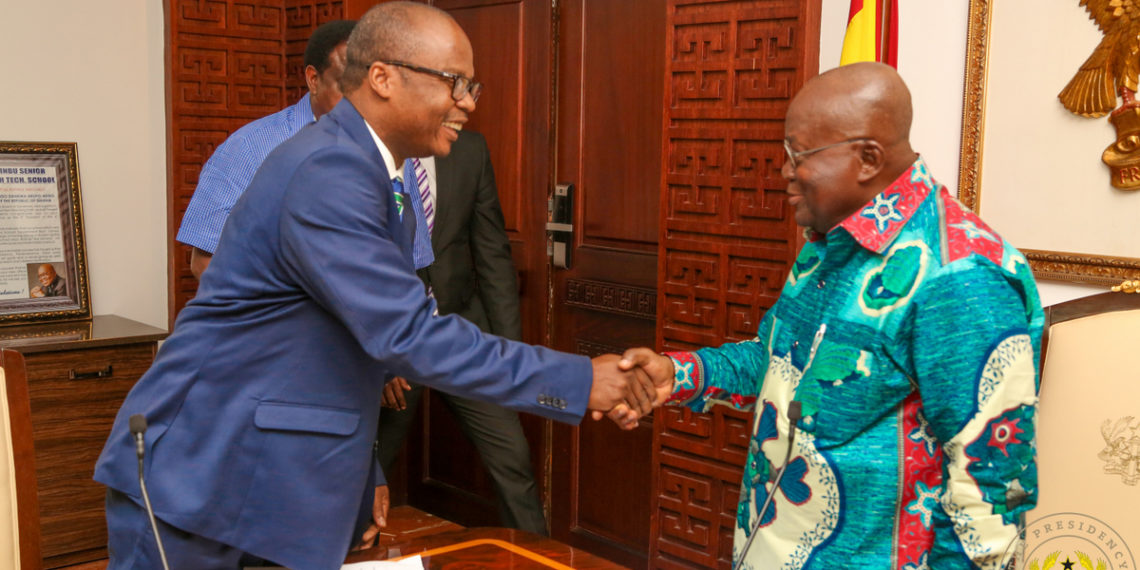Last week the statutory regulator of the banking sector, the Bank of Ghana closed down two additional universal banks and announced 23 banks as fit for operating in the country. Michael Osei Owusu (Senior Banker) discusses the counterfactual and examines whether it was necessary to scale up the minimum capital requirement to GHC400 million. Specifically, the author provides some insight into what could have been the case if there was no change in government in 2016, and particularly if the past managers of the Bank of Ghana had remained in office.
This approach is helpful because of two reasons. The first is that, the on-going reforms are not entirely new. Most of it was designed by the past management with the same time frame of end-2018. What is different is perhaps among others, the setting of the minimum capital requirement at GHC400 million instead of GHC230 million as originally intended.
Secondly, a number of new regulatory and supervisory laws that were introduced by the past management are the very ones that are being applied for the resolution and restructuring of banks. Hence, the counterfactual gives a different perspective on the efforts that were underway and what those could have led to. Such a balanced approach is more helpful in trying to understand the reforms and what remains to be done.
Let’s now start with the 2015 Assets Quality Review (AQR) exercise that was carried out by the previous managers at the Bank of Ghana in 2015 and 2016. The exercise gave a clear insight into the state of the banking industry at the time and led to the initiation of a number of legal and institutional reforms to address the vulnerabilities. In particular, let’s recall the passage of the Energy Sector Levies Act (ESLA) in December 2015.
The AQR at the time showed that banks were at various solvency levels, with 8 banks in particular that had a clear capital shortage problem. For some of these, the shortages resulted from deterioration of their SME portfolio while for others this was due to significant exposures to state-owned enterprises (SOEs) in the energy sector as well as Bulk Oil Distribution Companies (BDCs). An updated AQR was done in late 2016 which informed the establishment of a recapitalization and liquidity roadmap for the banking sector.
The banking sector recapitalization program was intended to be completed by end-2019, with a new minimum capital requirement of GHS230 million for banks introduced starting January 2017. At the same time, a guideline on the implementation of the Internal Capital Adequacy Assessment Process (ICAAP) was issued to banks. The ICAAP would assess a bank’s risks; detail how the bank intended to mitigate those risks and how much current and future capital would be necessary having considered other mitigating factors. Clearly, this would have introduced the needed flexibility to have small local banks operating alongside the big banks in Ghana without compromising on solvency or compelling small local banks to carry a lot of capital far beyond their needs.
At the same time, the Ministry of Finance was developing a plan to restore SOE’s financial viability, including clearing government arrears to these SOEs and BDCs after an audit and verification of the claims. This plan was to be finalized by end-December 2016, and government had committed to implement it or otherwise issue government bonds to repay the impaired loans to the affected banks.
There was the understanding that if the plan was not followed, then banks would have to make appropriate provisions for the impaired loans by end-2016, which could lead some banks into insolvency. Indeed, the process to clear arrears to SOEs and BDCs was ongoing with the help of Ernst & Young and a lot of progress was made by end-November 2016. Unfortunately, these efforts were truncated by the NPP government after the 2016 elections, and no effort was made to seek clarifications from any of the past managers on these.
In sum, the banking sector issues were being handled by the previous administration, with efforts to ensure a sound, stable, and resilient financial sector to support inclusive economic growth. As a further part of the reforms, new banking regulations, including the Specialized Deposit-Taking Institutions Act, BSDI Act 2016 (Act 930), the Ghana Deposit Protection Act, 2016 (Act 931) and the Bank of Ghana Amendment Act, 2016 (Act 918), were all done by the past managers in 2016.
In particular, the BSDI Act 2016 (Act 930) was meant to bridge gaps associated with consolidated supervision, bank resolution and other lapses identified in the legal framework that was left by the previous NPP government; while the Deposit Protection Act 931 sought to provide a safety net for customers of financial institutions. Amendments to the Bank of Ghana Act also sought to clarify some ambiguities in the Act and made the role of the Central Bank more transparent. It must particularly be noted that it was the passage of Act 930 that provided the Bank of Ghana the necessary powers to resolve insolvent banks as is being done now. The Act was also meant to ensure that a credible threat of resolution would serve as incentive for banks to implement recapitalization.
Other regulations that were initiated include, the Corporate Governance Guidelines which was later issued by the current managers in 2017. To promote payment systems development, two guidelines, namely; Guidelines for Electronic Money Issuers in Ghana and the Agents Guidelines were also issued in 2015. These Guidelines brought interest among financial and non-financial service providers in innovating products and services, especially regarding mobile banking. Thus, new institutions entered the space; and new products and services were delivered through market-driven collaboration between financial institutions and non-financial institutions. The guidelines were later converted into an omnibus Payment Systems and Services Bill to further strengthen the country’s payment system, and this was being considered for passage before the 2016 elections. Work on Cybersecurity regulations was also initiated in 2016 and a Cyber firm was engaged to drive the effort to ensure that Ghana’s banking industry was protected against Cyber-attacks. The regulations were finalized and later issued by the current managers in 2017.
To conclude, a comprehensive roadmap for the resolution of the challenges in the banking system was already in place and was meant to be completed by end-2019 with the recapitalization of banks. Clearly, the issues would have been tackled differently and certainly more effectively. For example, the ESLA framework was being used to clean up the banks’ books, and a similar framework could have been used to clear all banks’ exposures to government without the on-going disruptions. The plan by the previous administration was to peg the new minimum capital requirement at GHC230 million for existing banks and also introduce the Internal Capital Adequacy Assessment Process (ICAAP) for banks. This approach would have addressed the vulnerabilities seamlessly, and without all the fanfare.
By Michael Osei Owusu | Senior Banker




















